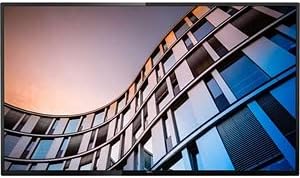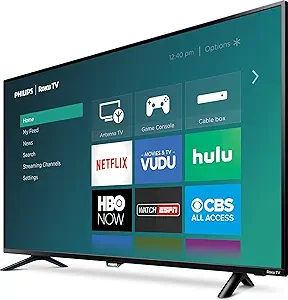TCL and Philips would almost certainly be at the top of any list of the most well-known TV makers if you were asked to create one. There's a strong probability that one of the two televisions will suit both your watching preferences and price range.
TCL history
TCL Corporation is a multinational electronics business based in China that was founded in 1981. It began by making cassette tapes and developed into a major player in the worldwide consumer electronics market. TCL offers a wide variety of products such as home appliances, smartphones, and televisions.
It is today recognized as one of the top producers of electronics worldwide and is known for its creativity. It is present in many countries, including the United States, Australia, India, and China.
PHILIPS history
Philips is a multinational conglomerate company that was founded in 1891.They have influenced sectors, from TVs to medical technology. With its increased reach, Philips emerged as a leader in digital technology, television, and healthcare.
It provides healthcare solutions, lighting goods, and modern consumer gadgets in more than 100 countries. With operations all around the world, Philips is well-represented in the Netherlands, the US, China, India, and many other nations.
Picture Quality
Hisense and LG televisions showcase distinct methodologies in achieving optimal picture quality, influenced by their unique display technologies, color reproduction techniques, image processing capabilities, and panel craftsmanship. Hisense often underscores affordability while maintaining visual excellence, integrating technologies such as ULED and advanced image processing algorithms to deliver vivid hues, profound blacks, and intricate details across diverse resolutions. Conversely, LG prioritizes precision and immersion by leveraging innovations like OLED technology and premium panel construction to curate immersive viewing experiences characterized by vibrant colors, dynamic contrast, and true-to-life imagery. Despite their differing approaches, the decision between Hisense and LG hinges on individual preferences, budget considerations, and desired features. Consumers are encouraged to assess specific models, compare specifications, and contemplate personal viewing inclinations to discern which brand best suits their expectations for picture quality.
Design
In terms of design philosophy, Hisense and LG televisions present distinct aesthetics and ergonomic considerations. Hisense TVs often boast modern and minimalist designs, characterized by slim profiles, sleek stands, and lightweight build, catering to contemporary home decor with a focus on simplicity and practicality. Conversely, LG televisions exude sophistication and cutting-edge innovation, incorporating premium materials, sleek stand designs, and features like ultra-thin bezels and OLED panels, which offer an immersive viewing experience with unparalleled picture quality. While Hisense prioritizes functionality and understated elegance, LG emphasizes style and state-of-the-art technology, catering to diverse consumer preferences and interior aesthetics. The decision between Hisense and LG design ultimately rests on individual preferences, room decor, and the desired visual impact, prompting consumers to explore specific models and envision how each TV complements their living spaces.
Sound
When evaluating the audio performance of Hisense and LG televisions, various factors contribute to the overall sound experience, such as speaker configuration, audio processing technologies, and immersive features. Hisense televisions typically offer a range of speaker setups, including built-in speakers and optional soundbar solutions, often supported by technologies like Dolby Atmos and DTS Virtual:X for immersive soundscapes and enhanced clarity. In contrast, LG TVs prioritize audio excellence through advanced audio processing technologies, such as AI Sound Pro and Dolby Atmos, coupled with built-in subwoofers and dedicated audio enhancements to deliver rich, multidimensional sound with deep bass and clear vocals. While both brands aim to enhance sound quality, the specific models and features within each lineup may vary, influencing the overall audio performance. Ultimately, the decision between Hisense and LG for sound quality hinges on individual preferences, room acoustics, and the desired audio immersion, prompting consumers to explore specific models and consider additional audio accessories for optimal sound enhancement.
Quality and Performance
When assessing quality and performance between Vizio and Samsung televisions, both brands offer captivating features and cutting-edge technologies designed to elevate the viewing journey. Vizio prioritizes affordability and accessibility, offering a diverse array of models featuring advanced display innovations like Quantum Color and ProGaming Engine, ensuring vibrant colors, remarkable clarity, and smooth gaming experiences. In contrast, Samsung, renowned for its innovation and craftsmanship, incorporates proprietary technologies such as QLED, Neo QLED, and Quantum HDR to deliver immersive visuals with unparalleled brightness, stunning contrast, and true-to-life colors. While Vizio aims to provide value-driven performance, Samsung focuses on premium quality and technological advancements, catering to discerning consumers seeking top-tier features and superior design aesthetics.
Smart TV and Connectivity
In the realm of Smart TV and connectivity features, both TCL and Philips offer robust solutions tailored to modern viewing demands. TCL's Smart TV lineup is renowned for its user-friendly interfaces, access to popular streaming platforms, and compatibility with voice-controlled assistants, ensuring effortless navigation and content access. Additionally, TCL TVs feature a plethora of HDMI and USB ports, coupled with wireless connectivity options like Wi-Fi and Bluetooth, enabling seamless integration with external devices. Similarly, Philips Smart TVs excel in providing intuitive interfaces, extensive app selections, and unique features such as Ambilight technology for immersive viewing experiences. Prioritizing connectivity, Philips televisions are equipped with ample ports for external peripherals, alongside built-in Wi-Fi and Ethernet connectivity to ensure reliable internet access.
Brand Reputation
TCL and Philips are both esteemed players in the electronics sector, each with distinct areas of expertise. TCL, known for its focus on affordability and value-driven products, has rapidly expanded its global presence with a diverse array of consumer electronics. Despite its relatively recent entry into certain markets, TCL has garnered acclaim for delivering quality goods at competitive price points, particularly in the television domain. Conversely, Philips boasts a rich heritage of innovation and meticulous craftsmanship, spanning decades across a spectrum of consumer electronics segments. Revered for its dedication to cutting-edge technologies and top-notch construction, Philips has earned a reputation for reliability and performance, particularly among consumers who prioritize premium offerings. While TCL excels in providing affordability and value, Philips is renowned for its tradition of innovation and high-end offerings, catering to diverse consumer preferences and demands within the electronics industry.
Brightness
Regarding luminosity, TCL and Philips TVs demonstrate robust performance throughout their product ranges. TCL TV sets frequently showcase elevated brightness levels, particularly in their upscale variants incorporating QLED or mini-LED technology, augmenting overall visual clarity and prominence in brightly illuminated settings. Likewise, Philips televisions earn accolades for their remarkable luminance capabilities, notably in models integrating sophisticated LED or OLED displays, guaranteeing striking colors and exceptional visibility, whether in well-lit spaces or under daylight conditions. Both manufacturers prioritize luminosity as a pivotal element of the viewing encounter, accommodating users' desires for vibrant, dynamic imagery across diverse viewing contexts.
Smart Features
In the realm of smart television features, both TCL and Philips excel in delivering comprehensive solutions to enrich the viewing journey. TCL's smart TV offerings are characterized by their intuitive interfaces, broad access to streaming services, and seamless integration with prevalent voice assistants, ensuring effortless control. These features are thoughtfully designed to maintain affordability while providing an expansive array of smart capabilities. Conversely, Philips smart TVs are distinguished by their user-friendly interfaces, expansive selection of applications, and cutting-edge features such as Ambilight technology for immersive viewing escapades. Moreover, Philips prioritizes advanced connectivity functionalities and seamless synchronization with other smart home gadgets, catering to individuals seeking a cohesive and interconnected entertainment ecosystem.
Remote Control
When assessing remote controls, TCL and Philips strive to offer user-friendly solutions that enhance the viewing experience. TCL's remotes typically feature intuitive layouts with strategically placed buttons, ensuring effortless navigation and control over both the TV and connected devices. They often incorporate dedicated buttons for quick access to essential functions and popular streaming services. In contrast, Philips prioritizes simplicity and functionality in its remote controls, boasting ergonomic designs and clearly labeled buttons for seamless operation. Some Philips remotes may even integrate additional features like backlighting or built-in voice control to further enhance convenience. While both brands prioritize intuitive remote designs, consumers' preferences for specific features and aesthetics may influence their choice between TCL and Philips televisions.
Philips OLED Tv 718/12 65" vs TCL S550G 98"
Conclusion
When choosing between Philips and TCL TVs, you need to base your choice on your own preferences. TCL is ultimately a better choice for those looking for the best feature-to-price ratio. Philips TVs, on the other hand, are something to think about if you prefer the concept of fully immersing yourself in material through sound and light and are more interested in audio-visual advancements. However, it is advised to physically assess TVs in the store before making a final choice to ensure that the selected model fully satisfies your needs in terms of picture quality, sound quality, and usability.




















